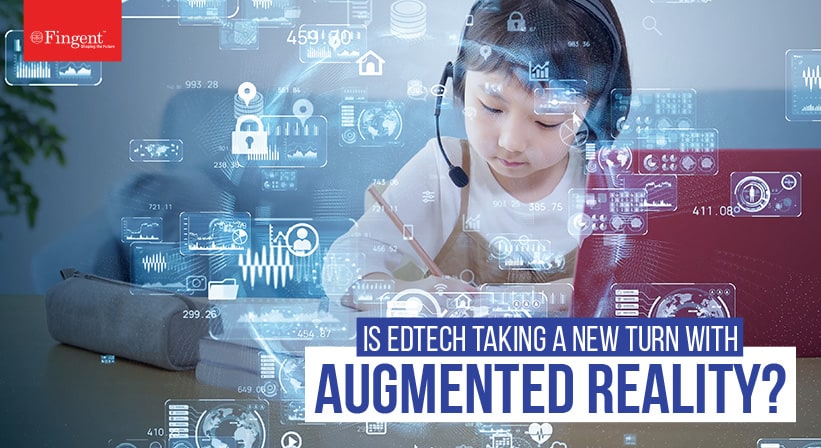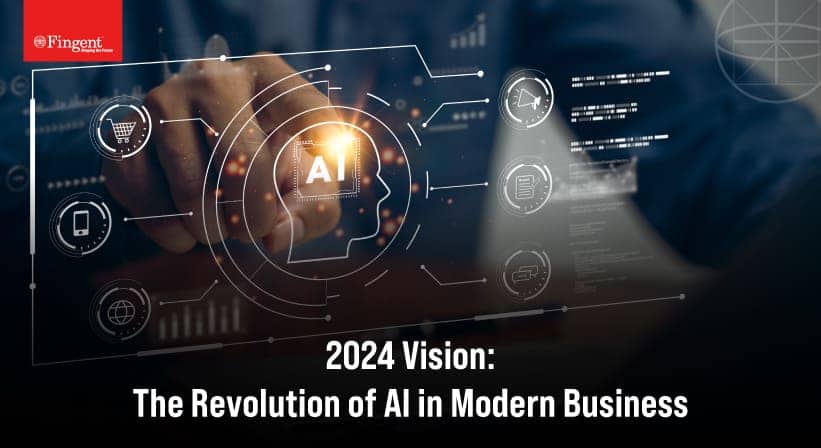The Rapidly Evolving College Admission and Learning Experiences!
Warning: in_array() expects parameter 2 to be array, null given in /home/www/fingenttest/public/wp-content/themes/fingent/template-parts/content.php on line 37
Warning: in_array() expects parameter 2 to be array, null given in /home/www/fingenttest/public/wp-content/themes/fingent/template-parts/content.php on line 81
Educational institutions were among the most impacted aspects of society when the coronavirus unleashed its hold on the world. Over the course of 18 months schools, colleges, and universities all around the world have faced more than their fair share of problems. No matter how difficult adapting to a completely different mode of teaching and learning is, many institutions faced the challenge head-on, pivoted, and caught up with the rapid change successfully.
In this blog, we will examine the challenges that loomed in front of the admission and college selection process and how rising technologies like VR & AI have helped tremendously in successfully dealing with these challenges.
Read more: The future of Augmented Reality in EdTech!

The Pandemic – A Massive Challenge for Students
Transitioning into the university lifestyle is usually a very significant part of an individual’s life brimming with feelings of anxiety, trepidation, and excitement. Adding into this already complex intersection of negative emotions, the aggressive transmission of COVID-19 has altered the higher education landscape on a colossal scale.
The pandemic created exponential threats to a student’s experience of streamlined higher education. Poor psychological outcomes, increasing levels of social anxiety, inducing feelings of lethargy, and reducing overall academic performance are predicted in the recent college students. To top it all, new applicants are facing the most difficulty deducing if a college is a good fit for them or not without ever entering the campus because of the pandemic restrictions.
Admissions and the College Selection Process During The Pandemic
The pandemic has forced universities and colleges to alter admission policies in recent years. There are constant updates in admission procedures that everyone must be aware of, whether it’s the extension of application deadlines or a change in how the admissions department will be evaluating applications.
1. New Selective Process
Many institutions dropped stereotypical testing methods and canceled extracurricular activities, and admissions counselors have changed how they examine and evaluate applications. Admission staff are encouraging potential students to showcase their caliber, personality, and passions during admission, particularly how they pursued the latter accompanied by a world plagued by COVID-19.
2. Efflux Of Applications
Since most popular universities and colleges decided not to consider SAT/ACT scores, they have faced a surge of applications creating greater diversity in the application pool. This hope is slightly misleading. Theoretically, it may seem as though the students have a good chance at admission, but this does not always translate into reality as these institutions still remain very selective.
3. Prosperity In Medium-Level Institutions
A great number of students who didn’t find acceptance in popular institutions found their hope in Medium-Level Institutions
4. Travel Restrictions
Due to travel restrictions, colleges provided online platforms for applications and even conducted interviews for admission through online mode.
Decrease In College Enrolment and Its Effects
Although universities and colleges have tried their maximum to keep admission procedures streamlined, College enrolment has seen a massive slump due to the pandemic. There is a drop of almost 1 million college students enrolling in higher education since before the pandemic began. Compared with the fall semester before the pandemic in 2019, undergraduate enrolment has dropped a total of 6.6%, representing the largest two-year decrease in more than 50 years. Thousands of students, many from low-income families were forced to delay school or drop out because of the pandemic and the economic crisis it has created.
Health and economic factors play into why hardly any students are enrolling in college during the pandemic and why people are opting for better-paying jobs instead of spending money on college. Given that cost is still the biggest obstacle, it isn’t surprising that prospective students suggest “free college” for a bigger impact on them finishing or returning to college – a very interesting insight that legislators are currently debating on.
The impact of having students not enrolling in college affects their individual earning potentials, as well as the economy of the country. Research shows that getting even a simple post-secondary education can lead to higher wages, lower unemployment, and greater lifetime earnings. Without this, fewer people graduate with the skills, credentials, and degrees required for a higher-paying job, which means unemployment for the student and a lack of a skilled workforce for the community.
Read more: Answering the top burning questions on AI implementation for businesses!

The Timely Rise Of VR & AI
“Change is inevitable and the disruption it causes often brings about new opportunities.”
Virtual Reality (VR) and Artificial intelligence (AI) are two cutting-edge technologies on the rise today. Their practicality has been proven in a number of fields and in the midst of the pandemic, these technologies grow greater.
Higher education administrative processes have started using AI to recruit, admit and enroll students. It acts as a powerful instrument in nurturing innovation and entrepreneurship in universities and it can accurately estimate demand, which means it can predict with precision how many applications to accept to achieve prime enrolment numbers.
Here are a few ways how AI helps:
- AI-backed software scores an applicant against a set of significant factors based on past applicants and builds software for higher education. This is comparatively easier and faster than admission officers assessing each and every application on their own.
- AI eliminates situations where an admissions officer might know an applicant and be biased, robotically flagging a personal connection that exists between two parties.
- AI can customize, speed up and personalize the admissions process for intercontinental students, including visa processing, housing selection, and course registration.
- AI has the latent to create interventions for students suffering from homesickness or social isolation and is thereby an important tool for student welfare, ultimately attracting more student applications.
#1. How Fingent Utilized AI-enabled Chatbots To Create Enhanced & Engaging Learning Experiences
Fingent helped the University of North Carolina develop an AI-driven ecosystem powered by IBM Watson that facilitates students to interact with an AI-enabled Teaching Assistant(AiTA). Multiple Chatbots are set up to manage a wide range of student inquiries. Also, important documents and teaching materials are uploaded with keyword and tag searches to make them easily accessible. The environment enables to create a healthy student-teacher relationship, instruct and engage students effectively, and improve students learning experiences.
Here are a few ways how VR helps:
- A VR package allows overseas students to get a sense of what the community and campus are like.
- It creates a high-quality image of the college and by using cost-effective devices like Google Cardboard, keeping costs in check becomes a less daunting task.
- With the help of VR, you can give enrolled students (who have not already seen the campus) a more profound sense of campus life and community. The idea is to charm them to make time for an in-person campus tour.
#2. More On Gear Up – Deploying VR For Campus Visits
GEAR UP is a virtual reality-based app that helps high school students experience a college campus through Virtual Reality and 360 Video. GEAR UP creates direct connections to college campuses and curates the college choice process. It empowers individual exploration and is completely free to download, making it easily accessible. It invites students to explore colleges and focuses more on first-generation students. The Introductory videos are anticipated to assist students in finding a suitable college to fit their interests and give them a sense of where they might want to attend. GERA UP is created as an initiation to help increase the number of students from low-income backgrounds who seek to obtain a secondary or post-secondary education.
Stay up to date on what's new

Recommended Posts

18 Apr 2024 B2B
Applied AI For Document Processing
"It's becoming increasingly clear that AI is the future, and almost everything else is a sideshow." - World-renowned computer scientist Geoff Hinton AI has taken over almost every aspect of……

10 Jan 2024 B2B
AI Trends Set to Transform Businesses in 2024
In the dynamic realm of modern business, the profound impact of artificial intelligence (AI) continues to unfold, reshaping industries and redefining conventional practices. As we step into 2024, the transformative……

26 Nov 2023 B2B
Finding Success in the Aviation Business with AI
“Aviation is the branch of engineering that is least forgiving of mistakes.” - Freeman Dyson, British-American theoretical physicist and mathematician. The truth in that statement is sobering indeed. The precision……

27 Oct 2023 B2B
Generative AI – Magnifying the Power of AI in Business
Are you sick and tired of performing the same monotonous task every day? Well, if your answer is yes, then Generative Artificial Intelligence can benefit you. Technology is evolving at……
Featured Blogs
Stay up to date on
what's new










